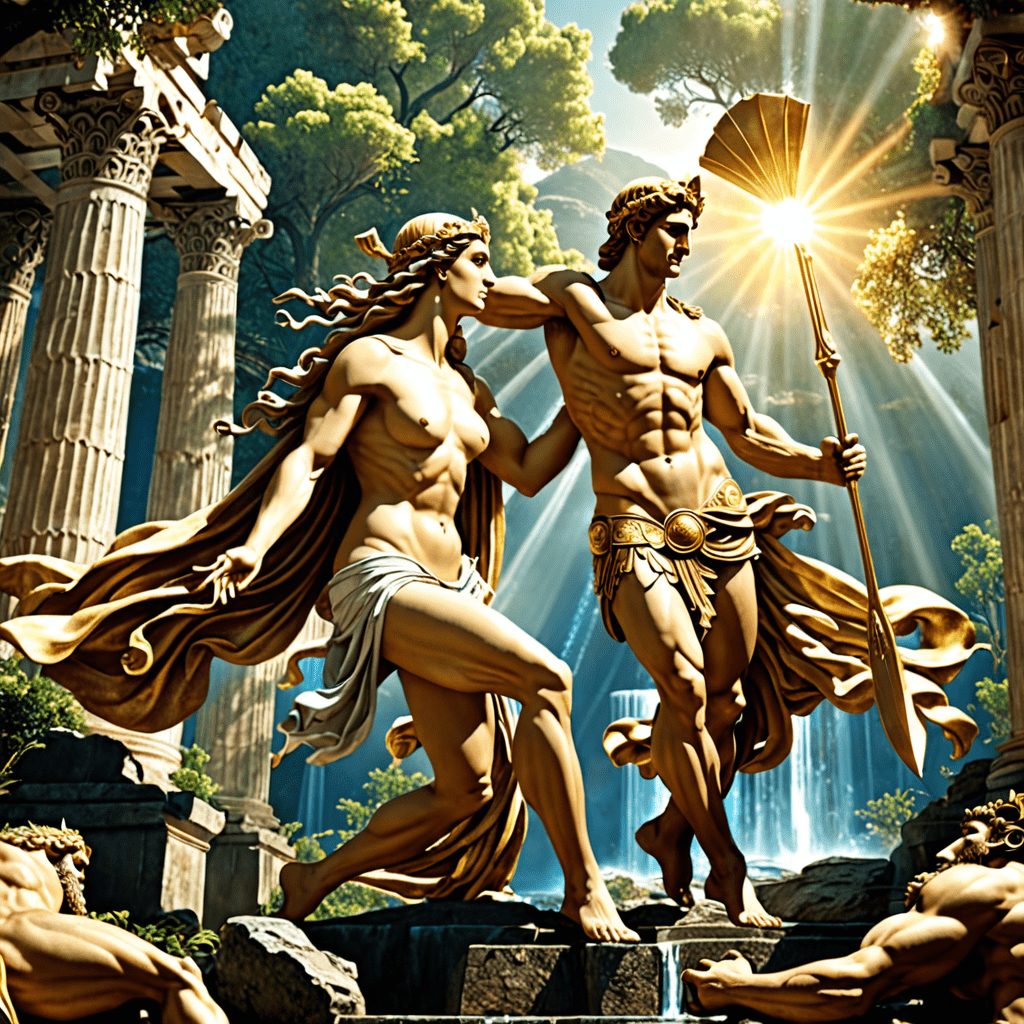The Representation of Nature in Greek Mythology
Greek mythology is rich with stories that not only depict the lives of gods and heroes but also intricately weave elements of nature into their narratives. Nature, in Greek mythology, is not merely a backdrop; it is often personified and seen as an active, sentient force intertwined with the divine. Let’s explore how nature is represented in Greek myths.
The Deities of Nature
In Greek mythology, various gods and goddesses symbolize nature’s different aspects. From Zeus, the god of the sky and thunder, to Poseidon, the god of the sea, and Demeter, the goddess of agriculture and the harvest, each deity reigns over a particular domain of the natural world. These deities embody the power and majesty of nature, shaping the Greek understanding of natural phenomena.
Nature as Symbolism
Nature in Greek mythology often serves as symbolism for broader themes and concepts. For example, the story of Persephone’s abduction by Hades and her subsequent return heralds the changing of seasons, with Persephone representing the cycle of growth, harvest, and renewal. Similarly, the emergence of Athena, born fully grown from Zeus’s head, symbolizes wisdom and strategic skill—a reflection of the rational and ordered aspects of nature.
Environmental Lessons in Greek Myths
Beyond serving as symbols, Greek myths also provide moral and environmental lessons. The story of Orpheus and Eurydice warns against the dangers of defying natural laws, while tales of nymphs and satyrs emphasize the need for harmony between humans and nature. Through these myths, the Greeks imparted the importance of respecting and coexisting harmoniously with the natural world.
Legacy and Influence
The representation of nature in Greek mythology continues to influence art, literature, and even environmental consciousness today. From the echo of Apollo’s songs in the haunting beauty of the natural world to the evocation of Artemis’s wild spirit in untamed forests, the essence of Greek mythic nature endures as a vibrant tapestry interwoven with our collective cultural heritage.
FAQ: The Representation of Nature in Greek Mythology
What role does nature play in Greek mythology?
Nature holds significant importance in Greek mythology, often personified by powerful deities such as Zeus, Poseidon, and Demeter. These gods and goddesses are associated with elements like the sky, sea, and earth, illustrating the Greeks’ deep connection and reverence for the natural world.
How do Greek myths explain natural phenomena?
Greek myths often offer narratives to explain various natural phenomena. For example, the change of seasons was attributed to the myth of Persephone’s abduction by Hades and subsequent return, symbolizing the cycle of nature’s fertility and dormancy.
What are some examples of nature symbols in Greek mythology?
In Greek mythology, natural elements are often symbolized by creatures like the Nymphs, who embody the spirits of specific natural features like forests and water bodies. Additionally, animals like the eagle, associated with Zeus, and the dolphin, linked to Poseidon, represent nature’s influence in mythological tales.





